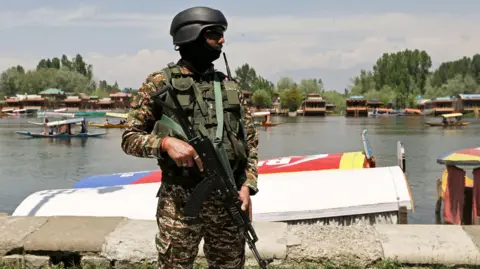Tensions between India and Pakistan usually spill over into many points of their shared geography and historical past, and one of the vital vital amongst them is water. With a number of main rivers flowing from India into Pakistan, a typical query that arises—particularly throughout instances of battle—is: Can India really cease river water from flowing into Pakistan?
Let’s break it down.
The Indus Waters Treaty: The Basis of the Water Relationship
To know the water dynamics between the 2 nations, we have to begin with the Indus Waters Treaty (IWT), signed in 1960 and brokered by the World Financial institution. This historic settlement has withstood a number of wars and many years of political hostility.

In response to the treaty:
India bought management of the jap rivers: Ravi, Beas, and Sutlej
Pakistan bought management of the western rivers: Indus, Jhelum, and Chenab
India is allowed “non-consumptive” use (reminiscent of irrigation and hydroelectric tasks with out storage) of the western rivers, however it can not cease their move or retailer vital quantities of water.
Can India Legally Cease the Circulation?
Brief reply: No, not solely.
Underneath the Indus Waters Treaty, India can not unilaterally cease the move of water into Pakistan, particularly from the western rivers. Doing so could be thought-about a violation of worldwide legislation and would spark main diplomatic penalties.
Nevertheless, India has some flexibility throughout the treaty:
It could maximize its utilization of the jap rivers, generally diverting water that might in any other case move into Pakistan.
It could construct run-of-the-river hydroelectric tasks on the western rivers (so long as they don’t retailer water).
It could enhance irrigation infrastructure to attenuate loss and make full use of its allotted share.
What Has India Mentioned in Current Years?
Within the wake of assaults and border skirmishes, Indian leaders have generally introduced up the treaty in nationwide discourse. After the 2016 Uri assault and the 2019 Pulwama assault, Indian ministers publicly talked about re-evaluating the treaty.
In 2019, India’s then Water Assets Minister Nitin Gadkari tweeted:
“Underneath the management of Hon’ble PM Narendra Modi, our authorities has determined to cease our share of water which used to move to Pakistan. We are going to divert water from jap rivers and provide it to our folks in Jammu and Kashmir and Punjab.”
This assertion referred to diverting India’s rightful share—not stopping Pakistan’s share. Whereas robust in tone, it was nonetheless throughout the authorized boundaries of the treaty.
What Are the Technical and Environmental Challenges?
Even when India wished to construct dams or diversion channels to completely use its share of the water, it wouldn’t occur in a single day. Main infrastructure tasks take years of planning, funding, and development. Moreover, there are geographical limitations—among the terrain is mountainous and tough to entry.
There are additionally ecological considerations. Messing with river programs can impression native agriculture, ecosystems, and communities—on each side of the border.
What May Occur If India Violated the Treaty?
If India had been to unilaterally block water move:
It might result in worldwide arbitration or authorized motion.
It might provoke retaliation from Pakistan.
It will doubtless injury India’s popularity as a law-abiding nation within the international neighborhood.
So, What’s the Verdict?
India can not legally cease water from flowing into Pakistan—not with out violating the Indus Waters Treaty and worldwide norms. Nevertheless, India can totally make the most of its share and spend money on tasks that enhance its personal water administration.
Fairly than a instrument of battle, water might ideally be a pathway to cooperation—if managed correctly and peacefully.
Have ideas on the Indus Waters Treaty or the way forward for water diplomacy in South Asia? Share your views within the feedback under!
For extra magnificence suggestions and celeb insights, go to share4all.cc or gag4all.com.



















 Animals
Animals
